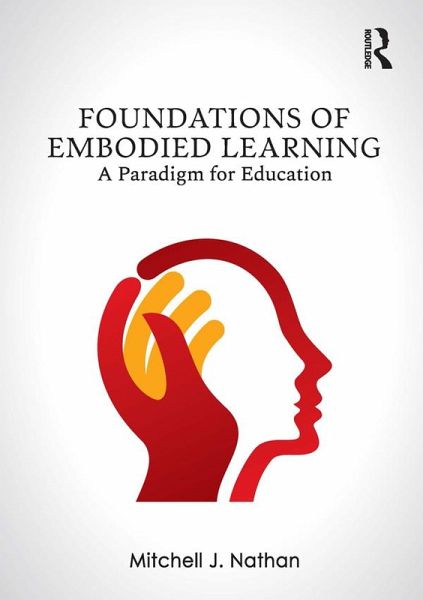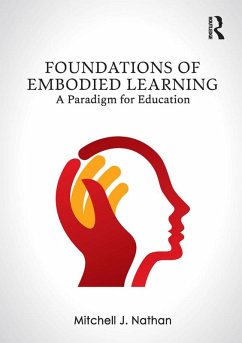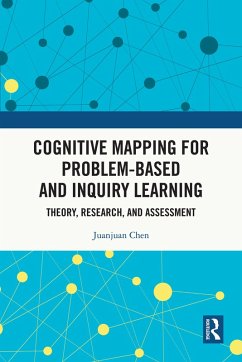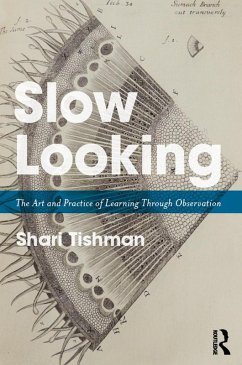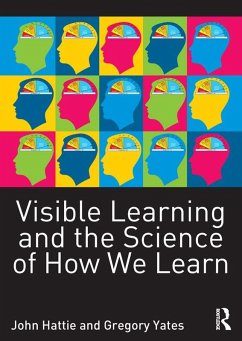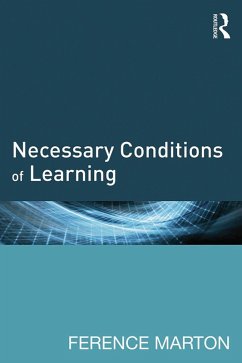"How do students learn? How can educational practices best support that learning? In this book, Mitchell J. Nathan addresses these enduring questions and deftly builds the case for Grounded and Embodied Learning as a new paradigm for education. He synthesizes decades of theory and research on the role of the body in learning, and he draws practical implications for instruction, learning environment design, and assessment. This is an essential reading that will spark new insights and approaches, both for researchers and for educators."
-Martha Wagner Alibali, Vilas Distinguished Achievement Professor in the Department of Psychology at University of Wisconsin-Madison, USA
"Mitchell J. Nathan's book provides a superb review
and analysis of work in the field of embodied cognition and makes a compelling case for the educational significance of this research program-a must-read for educators and education researchers."
-John T. Bruer, President Emeritus of The James S. McDonnell Foundation
"
Foundations of Embodied Learning is a heady achievement. Using his encyclopedic command of literatures in cognitive psychology, embodiment, and education, mixing in cognitive neuroscience and philosophy, Mitchell J. Nathan develops an account of learning processes that spans milliseconds to years. By deriving principles that guide both learners and instructors, the text moves from a theoretical exposition of how things are to a practical guide for how things should be. This book is a must-read for learning scientists, psychologists, teacher educators and teachers, instructional designers, and everyone interested in all aspects of human learning."
-Arthur Glenberg, Emeritus Professor at Arizona State University, USA, Emeritus Professor at the University of Wisconsin-Madison, USA, and a member of INCO at the University of Salamanca, Spain.
"This book convincingly argues that the best way-in fact, the only way-for people to really master difficult topics is to ground them in bodily, perceptual, participatory, and enculturated experiences. Masterfully integrating a breathtaking gamut of evidence from neuroscience, psychology, education, and social interactions, this book provides the antidote to modern educational practice, which has too often tried to reduce understanding to mere symbol manipulation. The exciting alternative presented here is to harness the millions of years that Mother Nature has spent honing our systems for perceiving, acting, and interacting to learn about things that haven't been around long enough to become biological endowments: reading, writing, mathematics, logic, and science. The book erects a lasting edifice from cognitive science theory to educational practice in curriculum, instruction, assessment, and technology-one that offers real progress in constructing learning on top of concrete, robust foundations."
-Robert L. Goldstone, Distinguished Professor and Chancellor's Professor in the Department of Psychological and Brain Sciences at Indiana University Bloomington, USA
"Mitchell J. Nathan takes us on an epic journey into the world of Grounded and Embodied Learning-from its manifestations at the scale of neurons to the scale of social communities-and shows us a powerful and synthetic way to understand how people learn. Along this journey, he clearly presents both classic and recent studies from cognitive psychology and the learning sciences that make a convincing case for why we need widespread adoption of a GEL
paradigm in education and educational research. This book is a must-read for anyone curious about embodiment and for anyone ready for a fresh new perspective on the wonders of human learning."
-Victor R. Lee, Associate Professor of Learning Sciences and Technology Design at Stanford University, USA
"Psychologists know a lot about the mechanisms of learning, and teachers know a lot about the practice of instruction, but, for too long, these two groups have had little contact with each other. This book should, and I hope will, change all that. It provides a masterful synthesis of a wealth of empirical research-much of which comes from Dr. Nathan's own lab-that reveals the importance of bodily processes in learning all manner of academic subjects: geometry, algebra, reading, second-language acquisition, to name just a few. If there is one book that belongs on the shelves of anyone interested in bringing the latest advances in educational psychology and embodied cognition into their classrooms, or in the evidence that supports a more body-centric form of pedagogy, this is it."
-Lawrence Shapiro, Professor of Philosophy at the University of Wisconsin - Madison, USA
